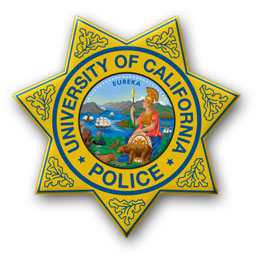9-1-1 Emergency Communications Center
The University of California Davis, Police Department 9-1-1 Emergency Communications Unit is the primary twenty-four hour answering point for all police, fire, and medical emergencies at UC Davis Campuses. Public Safety Dispatchers are responsible for dispatching both emergency and non-emergency personnel and appropriate resources as required to ensure the community receives the best possible service in a timely manner.
Dispatch Coverage
The dispatcher's role is to ascertain as much information as possible for responding personnel. In emergency in-progress situations, the dispatcher will keep the caller on the telephone while simultaneously relaying updated information to responding personnel while enroute to the scene. It is the dispatcher's responsibility to obtain vital information for responding personnel such as weapons involved, number of people involved, or if anyone injured or possibly under the influence of alcohol or drugs. All this information is important to responding personnel before arriving at the scene.
The Public Safety Answering Point operates 24 hours a day; seven days a week, with a minimum of two P.O.S.T. certified Public Safety Dispatchers.
Dispatchers: 9 Full time
Supervisor: 1
Police & Fire Alarms
The Communications Center receives and monitors several types of alarms including direct alarms for local area police and fire accounts on the UC Davis campus and at the UC Davis Medical Center in Sacramento.
We also monitor some police and fire accounts located out of the area or in another agency’s jurisdiction.
PLEASE remember to use the 9-1-1 system for emergency calls only!
What is an Emergency?
An emergency is when IMMEDIATE Police, Fire, or medical is necessary to protect life or property.
All lines are handled the same regardless of whether it is received on 911 or on a business line. The 911 simply prioritizes our critical workload to answer the phone lines according to true emergencies versus those that are not critical.
When calling 9-1-1 it is important to remember to stay on the line, remain calm, and answer all the questions asked of you. DO NOT hang up until the dispatcher advises you to do so.
What is NOT an Emergency?
- Loud parties or music
- Barking dogs
- Parking violations
- Requests for information
- Non-injury vehicle accidents
- Time-delayed report calls
Emergency Call List Update
The Communication Center maintains contact information for all campus units and departments. Every year, we request that each unit and department review its emergency call out list for accuracy. Though we send this reminder out once a year, we ask that you remain vigilant and submit necessary changes any time throughout the year. It is imperative that we have accurate information on file in the event of an emergency. All personal contact information is kept confidential and used only for law enforcement or emergency-related purposes.
Please use the Emergency Call List form to report your changes. It is available in two formats:
After completing the form, send it to:
- Email: letgarcia@ucdavis.edu
- FAX: (530) 752-3216

